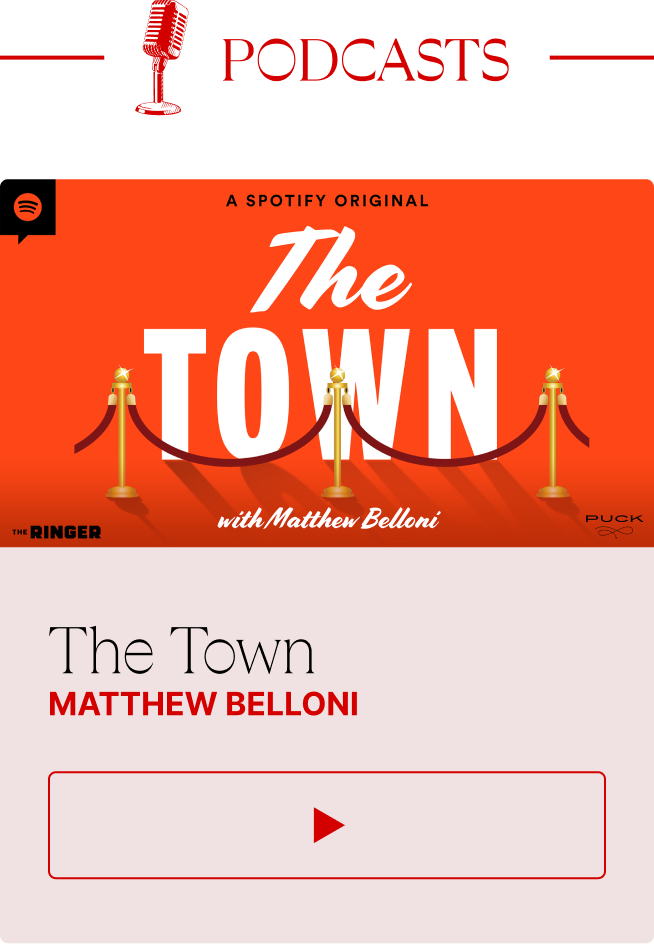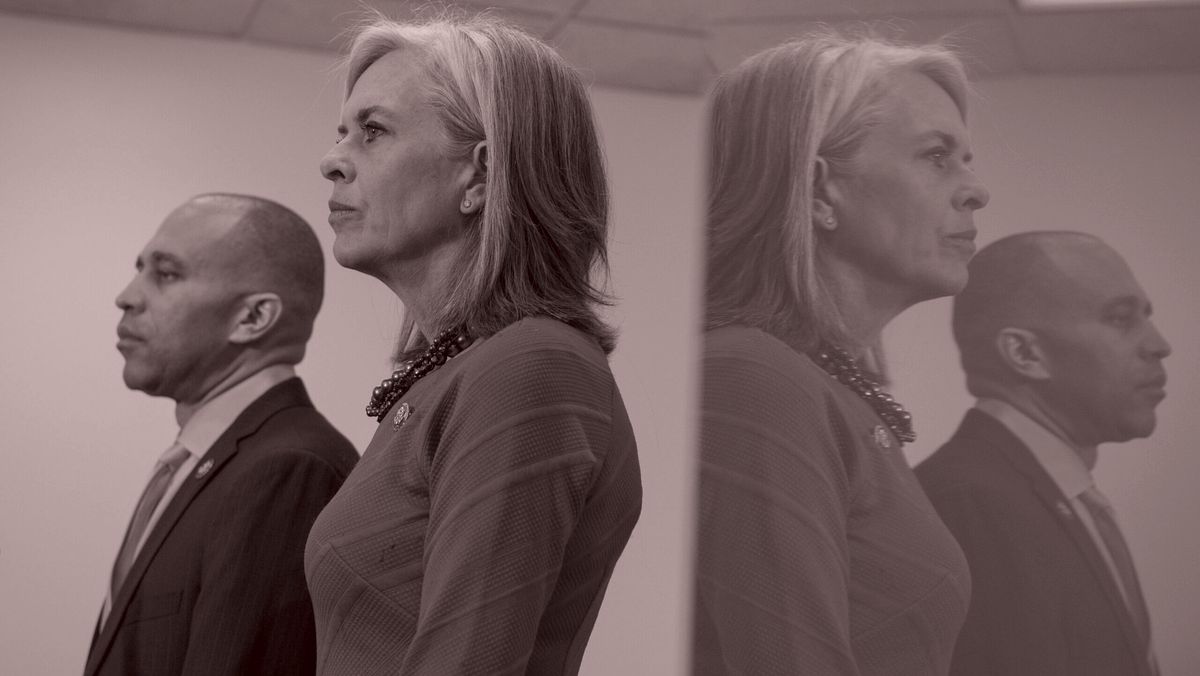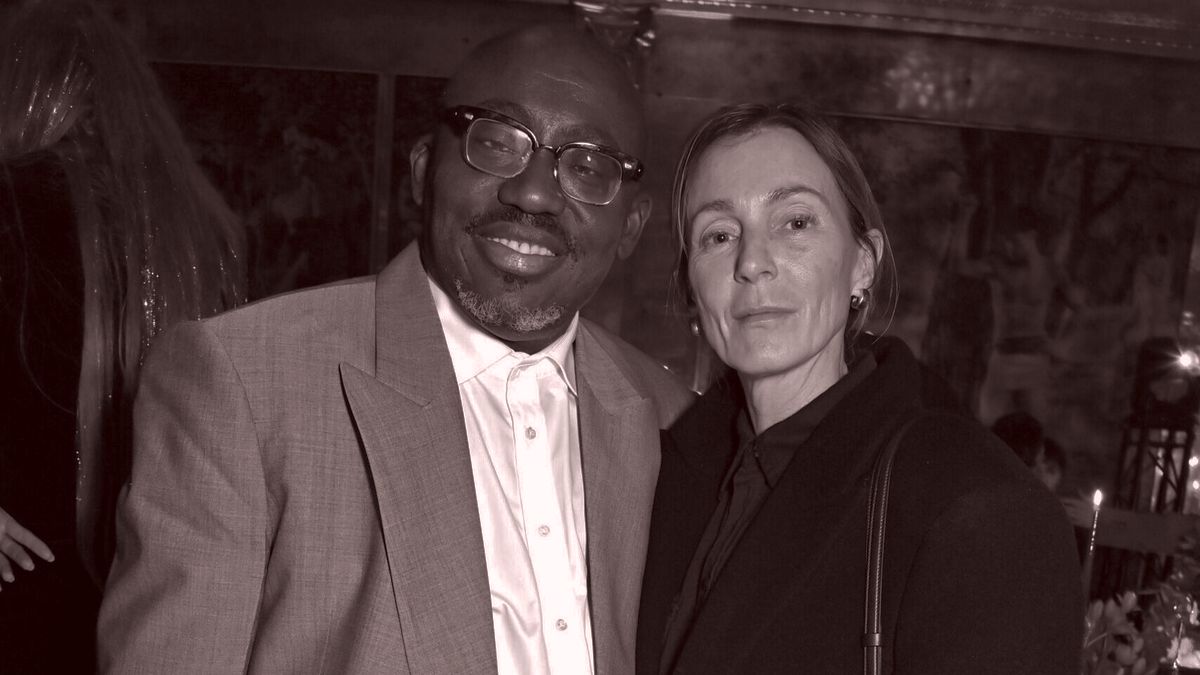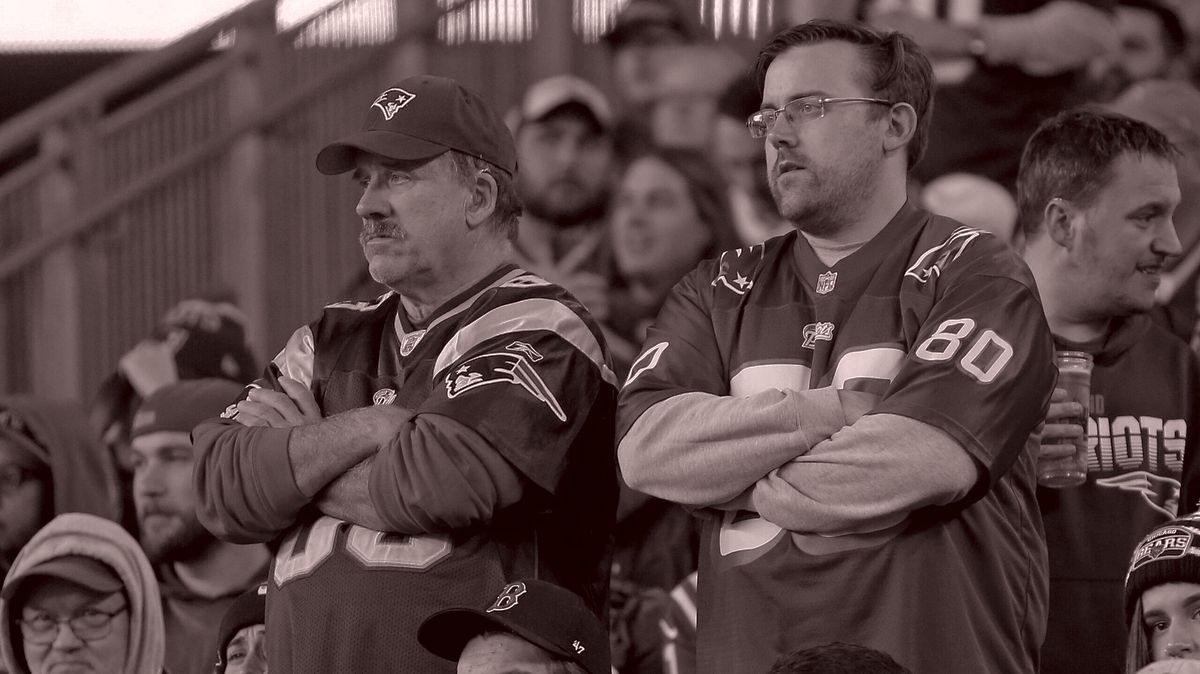Hello, and welcome back to What I’m Hearing+, the Tuesday vitamin drip
supplementing your regular WIH diet. Hollywood, and especially the movie business, is filled with the sons (and a few daughters) of the superrich who decide to become producers yet mostly “produce” problems and chaos. Still, the saga of John P. Middleton, heir to a tobacco fortune and son of Philadelphia Phillies owner John S. Middleton, deserves special notoriety. Today Eriq Gardner has exclusive updates on the story of a producing partnership
gone very sour, a Hollywood Hills mansion turned squatter’s paradise, and a crisis P.R. firm’s unpaid $1.5 million bill. All yours, Eriq…
|
|
|
A MESSAGE FROM OUR SPONSOR
|
The first new animated film in 11 years from legendary animator, writer & director Chris
Sanders
3 Academy Award® Nominations
Best Animated Feature
Best Original Score (Kris Bowers)
Best Sound
3 BAFTA Film Award® Nominations including
Animated Film
Original Score
PGA Award Nominee
Outstanding Producer of
Animated Theatrical Motion Pictures
|
|
|

|
Eriq Gardner
|
|
- Deep thoughts on
DeepSeek and copyright: Hollywood creatives might be indulging in a bit of schadenfreude this week after DeepSeek, a Chinese A.I. startup, caused a trillion-dollar selloff in U.S. tech stocks by introducing a much cheaper, more efficient large language model. In reality, of course, whatever data DeepSeek used to train its low-cost ChatGPT competitor is even more of a black box—and possibly beyond the reach of American copyright laws.
Hollywood has actually made
significant strides in combatting piracy in China, even managing to coax the Communist Party government into ramping up copyright protections—including a tenfold increase in statutory damages, recognition of broadcasters’ and recording artists’ public performance rights, and flipping the burden of proof onto the accused. Yet enforcement remains a challenge. Try suing in China, and you’ll find that many courts mandate separate actions for each infringed work, rather than allowing for a
consolidated case—making litigation slower and more expensive.
Anyway, don’t be surprised if Silicon Valley starts fearmongering about DeepSeek to take heat off its own exploitation of intellectual property without consent. Or if they start arguing that, if the media and entertainment industry becomes too litigious, it could push consumers toward less scrupulous, foreign alternatives.
- Live Nation and the Trump 2.0 tea
leaves: The first major antitrust decision of the new Trump era is coming—and it’s likely a mixed bag. In the coming days, we’re likely to get a ruling on the government’s crusade to dismantle Live Nation–Ticketmaster, launched last May under the Biden administration. If the vibe from last week’s court proceedings are indicative, both parties will claim some victories.
In Live Nation’s favor, U.S. District Court Judge Arun
Subramanian seems poised to reject one of the government’s big claims—specifically, that Live Nation is violating antitrust law by requiring musicians performing in its amphitheaters to also use its promotional services. Live Nation defends the policy by arguing that the law doesn’t compel it to allow rival promoters access to its venues. Moreover, the government would appear to lack concrete evidence of specific instances of coercion. During the hearing, Subramanian hinted
that the government’s case could hold water if it showed that Live Nation leveraged its control of specific venues to dominate entire tours. But it doesn’t appear that the government holds such evidence at the moment.
On the flip side, Live Nation seems to have lost the argument that its opponents—the 27 states that joined the Biden administration, represented by both liberal and conservative A.G.s—don’t have legal standing. Live Nation asserted that the government’s claims
relate to artists, promoters, and venues—not “downstream” consumers. But Subramanian seems inclined to agree with the regulators, who argue that anticompetitive practices contribute to high ticket prices, and therefore the states can sue.
The bipartisan nature of the coalition bolsters the likelihood that the case won’t dissolve under political pressure, contrary to expectations that Trump’s Department of Justice will ease off antitrust cases. The states’ participation
also increases the chances of us seeing a jury trial, rather than a bench trial presided over by a judge.
- Let’s go Brendan at the F.C.C.: Newly appointed F.C.C. chair Brendan Carr prompted another round of handwringing when he revived election coverage complaints against CBS, NBC, and ABC, filed by a conservative outfit called the Center for American Rights. (Among other things, the Center has accused CBS of liberal bias over the
network’s editing of Kamala Harris’s 60 Minutes interview, and challenged ABC News’s fact-checking during the Harris-Trump debate.) These grievances, dismissed by Carr’s predecessor Jessica Rosenworcel on First Amendment grounds, don’t strike me as particularly consequential. While they may feed the MAGA beast, and win Carr some points with Trump, they’ll most likely end up in the same place as complaints about obscenity on television:
nowhere.
I’m more intrigued to see how Carr will tackle Skydance’s application to take over CBS licenses. The Center for American Rights is urging Carr to impose conditions on the deal, including relocating editorial staff away from New York and Los Angeles, appointing an empowered ombudsman, and committing to job recruitment from conservative incubators like Liberty University and Hillsdale College. Do I expect any of this to happen? No. But conservative groups will be able to make
mischief for news organizations, which could previously count on assumed protection under the aegis of the First Amendment.
- Cooking for Woody: An ongoing employment discrimination lawsuit against Woody Allen and his wife, Soon-Yi Previn, has something for everyone: foodies, comedy fans, and national security types. The plaintiff, personal chef Hermie Fajardo, who worked for the
pseudo-canceled director for a month last year, alleges that while Allen praised his culinary skills—lauding his roast chicken, fresh tomato sauce pasta, and, particularly, his apple pie—he was fired because his commitments as an Army reservist necessitated days off, leading to a wage dispute and eventual termination. Fajardo asserts that this constitutes a breach of the Uniformed Services Employment and Reemployment Act.
On Friday, Allen denied any prejudice against American soldiers,
instead criticizing Fajardo’s cooking, branding it “simply inedible” and claiming that it sometimes ended up in the trash.
|
|
|
A scandalous Hollywood breakup—no, not Baldonigate—is now slated for
trial, as an heir to a Major League Baseball team battles a top movie producer and a crisis publicity firm wants its $1.5 million bill paid.
|
|
|
Hollywood breakups are commonplace, yet occasionally a
partnership crumbles so spectacularly that it calls for a full-scale mobilization of lawyers, spin doctors, and shrinks. Such was the case in 2019, when John P. Middleton, the scion of a tobacco empire and part-owner of the Philadelphia Phillies, sued Roy Lee, the producer behind hits like The Departed, It, and this weekend’s Companion. Middleton had invested millions in Lee’s film projects and showered his then ally with perks like
yachts, use of a Malibu mansion, a private jet, and 50-yard-line Super Bowl tickets. The honeymoon didn’t last, of course. Middleton accused Lee of using the perks to build out his own business while shortchanging Middleton on producer fees and credits. Lee volleyed back, painting Middleton as a dilettante more interested in high-rolling than rolling up his sleeves and working, suggesting it was Middleton who bailed financially after their partnership collapsed under the weight of a fresh
venture with Casey Affleck.
As the legal battle unfolded, the media devoured the scandalous details: Middleton’s debauched escapades with Leonardo DiCaprio and friends, including the “black-out drunk” rich boy stumbling through a glass door on a yacht, crying, and urinating in his pants in front of Lee’s business contacts; his alleged use of a security firm to tail a
girlfriend who happens to be the daughter of New Hampshire Senator Jeanne Shaheen; and his donations to Donald Trump’s 2016 campaign. The Hollywood Reporter covered the story in 2020 (I worked there at the time, but wasn’t involved in the article),
leading to a defamation lawsuit by Middleton against THR for portraying him as a drunk. Covering all his bases, Middleton also sued his sobriety coaches for overbilling him and supplying him with booze. (The lawsuit against THR eventually fizzled.)
As with most scandals, the furor eventually dimmed, and the legal tussle between Middleton and Lee slowed down after Middleton’s billionaire father tried
to cut off access to his trust fund. It was all but forgotten by the time a judge ruled, in July 2022, that a jury would have to decide Middleton’s claim that Lee falsely promised producer credits in exchange for more than $7 million in benefits.
|
|
|
A MESSAGE FROM OUR SPONSOR
|
The first new animated film in 11 years from legendary animator, writer & director Chris
Sanders
3 Academy Award® Nominations
Best Animated Feature
Best Original Score (Kris Bowers)
Best Sound
3 BAFTA Film Award® Nominations including
Animated Film
Original Score
PGA Award Nominee
Outstanding Producer of
Animated Theatrical Motion Pictures
|
|
|
The case is now slated for trial on February 2, and while only a legal fool would
say it’s definitely moving forward, there’s plenty of action underway. Middleton has filed a petition in Delaware to appoint a receiver to account for the money in the production company he formed with Affleck. He’s also on the hook for debt he racked up during his public relations battle with Lee, and will have to sell his $10 million Hollywood Hills mansion as a result. This week, Middleton was ordered to court, with the looming possibility of a sheriff seizing his property and auctioning it
off. Today, a judge gave the order to indeed put it up for sale.
|
The High Price of
Celebrity Warfare
|
I’m fascinated by the thought of Middleton having to forfeit a
mansion simply because he once dreaded the optics of scandal—particularly while Tinseltown is enraptured by Baldonigate, another sprawling management crisis that’s escalated into a full-blown legal labyrinth. (You may have caught the latest development, wherein Blake Lively’s legal team proposed a gag order against Justin Baldoni’s lawyer Bryan Freedman after his comments to the press, sparking a “you started it,” “no, you did” volley
straight out of the schoolyard playground. A judge has set a hearing for next Monday.) It all invites the question: How much should a celebrity expect to pay to wage media warfare in 2025? Are stars genuinely resorting to sacrificing their coastal retreats to fund P.R. battles?
In Middleton’s case, the storm clouds had gathered when THR was about to break the story about his Hollywood misfortunes,
prompting him to hire Michael Sitrick and Sallie Hofmeister, crisis P.R. stalwarts known for repping figures like Johnny Depp, Kobe Bryant, and the Roman Catholic Archdiocese of Los Angeles. Sitrick billed a steep $1,250 per hour; Hofmeister wasn’t far behind at $895. Together, they dove into court filings, strategized responses, and liaised with reporters, running up a tab of more than $757,000. Years later, when Sitrick had to
chase the debt, an arbitrator added insult to injury, slapping Middleton with $338,000 in legal costs and $238,000 in interest, among other charges, ballooning Middleton’s I.O.U. to $1.47 million.
I recently got my hands on the arbitration documents, which contain Middleton’s pleas to dismiss the charges as unconscionable, as well as a breakdown of what Sitrick and Hofmeister did on their client’s behalf.
It seems much of their time was spent parrying reporters’ inquiries over whether Middleton had donated to Roger Stone’s PAC, bankrolled an effort to sabotage the Trump–Hillary Clinton debate, and helped suppress the Black vote in 2016. (Middleton’s team denied knowledge of any illicit activities and, conscious of Hollywood’s political leanings, insisted their client had changed his alliance to the Democrats.) Ironically, given that Middleton would later sue
THR for defamation, he initially praised his team for doing a “good job battling THR.” He was less happy with the “unmitigated disaster” that came from pitching the New York Post in an effort to preempt the THR article. The resulting story backfired, spotlighting his alleged drunken antics at the 2013 Cannes Film Festival. The arbitrator, Linda Miller, absolved Sitrick and Hofmeister of blame, noting they had done their best under challenging circumstances.
Now, with the $1.47 million judgment in hand, Sitrick has turned to the courts for collection. His sights are set on
Middleton’s aforementioned Hollywood Hills mansion, arguing it’s ripe for seizure given that Middleton’s primary residence appears to be in Miami Beach—meaning the Hollywood place is not shielded by California’s homestead law.
Last year, the sprawling 11,000-square-foot home, which features a ballroom, movie theater, and indoor and outdoor pools,
gained notoriety as a haven for squatters, complete with “fuck rich people” graffiti. Now Sitrick is primed to put the property up for sale at a moment when there’s no shortage of buyers, thanks to the city’s devastating wildfires. It could even become home to another Hollywood figure—hopefully one less worried about public
perception.
|
Thanks, Eriq. I’ll be back in your inbox on Thursday night.
Matt
|
|
|
Puck founding partner Matt Belloni takes you inside the business of Hollywood, using exclusive reporting and
insight to explain the backstories on everything from Marvel movies to the streaming wars.
|
|
|
Puck’s daily art market email, anchored by industry expert Marion Maneker, offers unparalleled access to the
mega-auctions and galleries, elite buyers and sellers, and the power players who run this opaque world. Wall Power also features Julie Brener Davich, a veteran of Christie’s and Sotheby’s, who provides unique insights into how the business really works.
|
|
|
Need help? Review our FAQ page or contact us for assistance. For brand partnerships, email ads@puck.news.
You received this email because you signed up to receive emails from Puck, or as part of your Puck account associated with . To stop receiving this newsletter and/or manage all your email preferences, click
here.
|
Puck is published by Heat Media LLC. 107 Greenwich St, New York, NY 10006
|
|
|
|



























